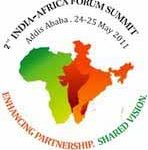 Prime Minister Manmohan Singh’s recent visit to Africa received extensive attention in the Indian media. Prime Minister Singh attended the second India-Africa Forum Summit in Addis Ababa on May 24th and 25th and visited Tanzania thereafter. The visit was used not only to demonstrate India’s commitment to Africa’s development needs but also highlight the strategy of engagement. As observed by Sudha Ramachandran, “India’s partnering in Africa’s development while laudable is not wholly altruistic”; it serves India’s diverse foreign policy interests. The strategy, however, is of greater significance. The focus is no longer limited to competing with China but on demonstrating the difference in partnership approaches pursued by India and China. Jairam Ramesh, India’s Minister for Environment and Forests, had referred to this difference during the First India-Africa Forum Summit in 2008 when he stated that, “The first principle of India’s involvement in Africa is unlike that of China. China says go out and exploit the natural resources, our strategy is to add value.”
Prime Minister Manmohan Singh’s recent visit to Africa received extensive attention in the Indian media. Prime Minister Singh attended the second India-Africa Forum Summit in Addis Ababa on May 24th and 25th and visited Tanzania thereafter. The visit was used not only to demonstrate India’s commitment to Africa’s development needs but also highlight the strategy of engagement. As observed by Sudha Ramachandran, “India’s partnering in Africa’s development while laudable is not wholly altruistic”; it serves India’s diverse foreign policy interests. The strategy, however, is of greater significance. The focus is no longer limited to competing with China but on demonstrating the difference in partnership approaches pursued by India and China. Jairam Ramesh, India’s Minister for Environment and Forests, had referred to this difference during the First India-Africa Forum Summit in 2008 when he stated that, “The first principle of India’s involvement in Africa is unlike that of China. China says go out and exploit the natural resources, our strategy is to add value.”
The theme of distinguishing Indian and Chinese approach to Africa was echoed in the media. Writing before prime minister’s departure, C. Raja Mohan, India’s leading strategic analyst, emphasized that “India will have a chance to differentiate itself from a crusading and domineering West and a cynical China in the engagement with Africa.” Brahma Chellaney, professor at the New Delhi-based Centre for Policy Research, told Reuters: “India is massively playing catch-up to China in Africa, and only in recent years is it trying to engage the continent in a serious way. But it is trying to build political and economic ties, and position itself as different to China, which has acquired the image of being a new imperial power.”
According to MK Venu, managing editor of The Financial Times, the popularity of India’s consumer brands among the African population augurs well for future partnerships. He noted that, “consumer brands like Bharti Airtel, Tata Motors, Mahindra Jeep, Maruti are already creating a impact in African markets.” The launch of Tata Nano is eagerly awaited in Africa. According to Venu, this enhances India’s ‘soft power’ and gives it “an advantage over China which does not have strong private sector brands in the consumer space, except perhaps in electronics.”
The print media has extensively referred to Mahatma Gandhi’s connection to Africa while reporting on Dr. Singh’s visit. One particular quotation doing rounds in the mainstream media reads, “The commerce between India and Africa will be of ideas and services, not manufactured goods against raw materials after the fashion of Western exploiters.”
Despite India’s self proclaimed intentions, competition with China over African resources cannot be wished away. India is rather engaging in sensible diplomacy by not challenging China directly while marketing itself as a better development partner. For India the challenge is three-fold. First, it is important to use soft power effectively. India needs to avoid miscalculations like providing concessionary loans for construction of Golden Jubilee House in Ghana, which serves as the residence and office to the President of Ghana. The majestic structure constructed at the cost of $ 30 million which led to controversies regarding the Government’s spending priorities in a country where poverty and hunger are widespread. Second, soft power alone shall not enable India to achieve its foreign policy objectives in Africa. Soft power needs to be combined with hard power resources for creating effective strategies. According to Joseph Nye, “Soft power definitely has limits. It depends upon the mind of the recipient as well as the sender. Smart-power strategies generally combine hard and soft in different measure in different contexts…which requires contextual intelligence.” India’s traditional aversion to using hard power resources in Africa could adversely affect its national interests. Opposition to international intervention in Libya, though justifiable on certain grounds, creates a leadership vacuum in India’s involvement with Africa. Third, it would be a mistake to consider that India is using soft power while China is using hard power to impress African countries. India faces immense competition from China’s charm offensive in the region and would have to devise innovative approaches. Dakar’s $36 million, six-storey Grand National Theatre, the largest of its kind on the continent, is China’s recent gift and reflects its growing charm offensive.